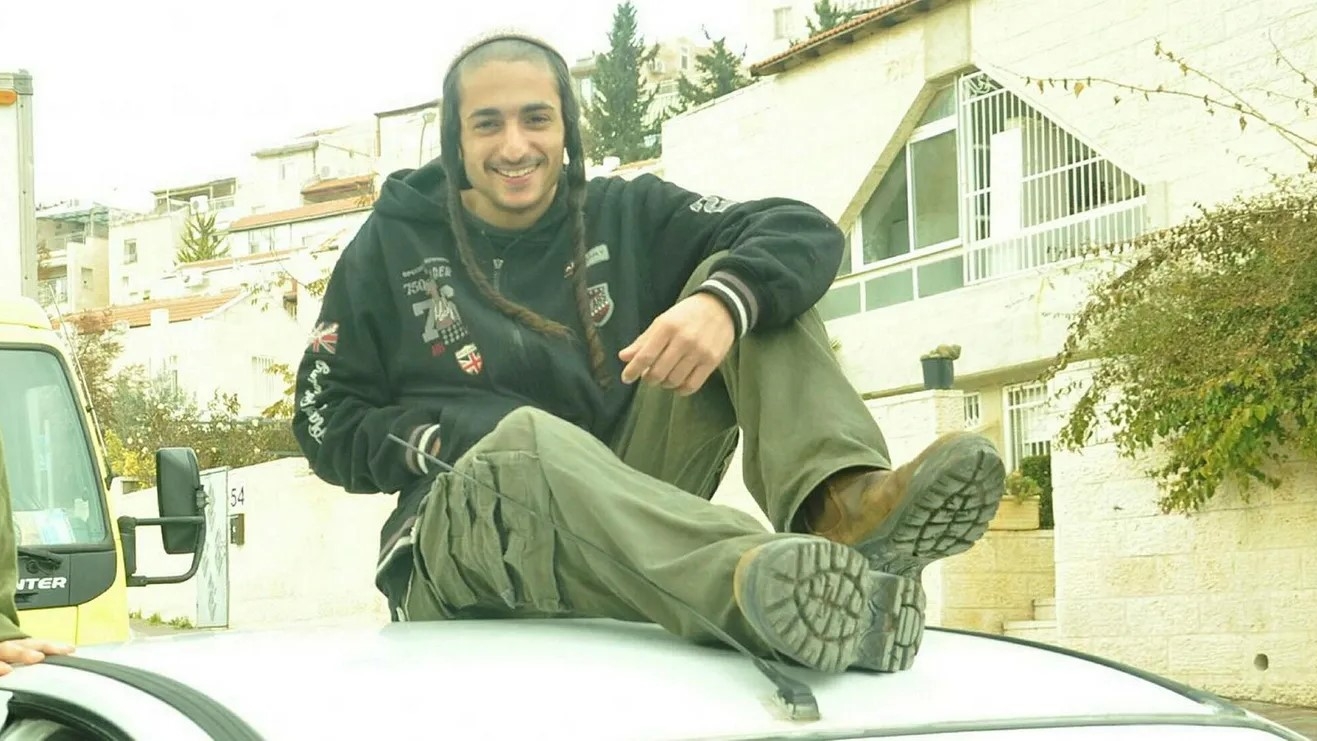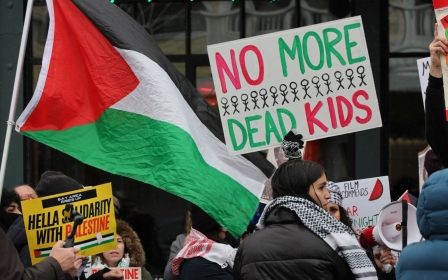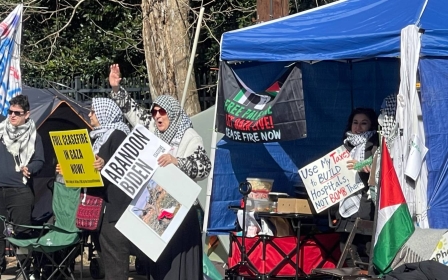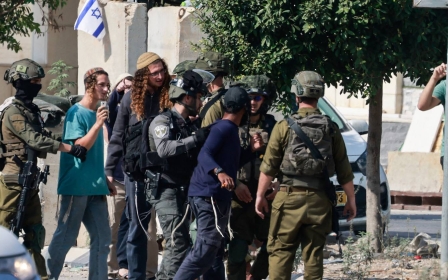War on Gaza: Who are the Israeli settlers sanctioned by the US government?

While pressure has continued to mount on US President Joe Biden to take action in response to Israel's war on Gaza, he has instead set his sights on the occupied West Bank.
Activity by Israeli settlers has dramatically increased since the beginning of the Gaza war on 7 October and a number of governments have begun imposing penalties and bans on those suspected of violent or illegal activity.
On Thursday, the US government said it had imposed financial sanctions on four Israeli settlers for violence against Palestinians to "promote accountability for certain harmful activities that threaten the peace, security, and stability of the West Bank".
"The situation in the West Bank - in particular high levels of extremist settler violence, forced displacement of people and villages, and property destruction - has reached intolerable levels and constitutes a serious threat to the peace, security, and stability," Biden said in an executive order.
With more sanctions expected in the future, Middle East Eye takes a look at the four Israeli settlers targeted by the US:
New MEE newsletter: Jerusalem Dispatch
Sign up to get the latest insights and analysis on Israel-Palestine, alongside Turkey Unpacked and other MEE newsletters
David Chai Chasdai
A 29-year-old settler most notorious for instigating the deadly riots in the Palestinian town of Huwwara in February last year, David Chai Chasdai was arrested in Israel over his involvement in what an Israeli army commander branded "a pogrom committed by outlaws".
The Huwwara rampage led to the death of 37-year-old Sameh Aqtash and the wounding of 98 other Palestinians, alongside the widespread destruction of property and burning of cars and homes.
Chasdai, who had long been monitored by the security services, was held for three months in administrative detention, a move rarely used against Israelis.
Though the riots were condemned by both Israeli politicians and the international community, National Security Minister Itamar Ben Gvir criticised Chasdai's detention as "undemocratic" and described him and his fellow settlers as "heroic".
According to Haaretz, he was previously arrested for threatening a police officer, making dangerous substances in 2015 and 2017, and was convicted for assaulting a Palestinian taxi driver with teargas.
Einan Tanjil
Einan Tanjil, 21, was, according to the US State Department, involved in assaulting Palestinian farmers and left-wing Israeli activists with stones and clubs, resulting in "injuries that required medical treatment".
In 2021, Tanjil was indicted for attacking 19-year-old Israeli activist Neta Ben-Porat with a club, beating her on the head and legs while she was trying to help Palestinians harvest olives near the West Bank town of Surif. The indictment also said he had possession of a knife and teargas.
Shalom Zicherman
In June, 32-year-old Shalom Zicherman found prominence when video footage of him assaulting Israeli activists and their vehicles in the West Bank was circulated online.
Zicherman, who is from the illegal settlement of Mitzpe Yair, is seen blocking them on the street and attempting to break the windows of passing vehicles with activists inside.
According to the State Department, Zicherman "cornered at least two of the activists and injured both". He was indicted in 2022 over the attacks and his trial is still ongoing.
Israeli activist Itai Feitelson, who originally posted footage of the attack, said it was the only case he knew personally in which a settler had been prosecuted for violence, but said that "in the end, Shalom is mostly the scapegoat".
Yinon Levi
The State Department described 31-year old Yinon Levi as having led a group of settlers who "engaged in actions creating an atmosphere of fear in the West Bank".
It said Levi had regularly led groups of settlers from the illegal Meitarim Farm outpost to assault Palestinian and Bedouin civilians, as well as threatening them with additional violence if they did not leave their homes, burning their fields, and destroying their property.
According to NPR, Levi's response to the sanctions was to suggest it was "strange they're dealing with this nonsense now", adding that he had never visited the US or had property there.
Middle East Eye delivers independent and unrivalled coverage and analysis of the Middle East, North Africa and beyond. To learn more about republishing this content and the associated fees, please fill out this form. More about MEE can be found here.




